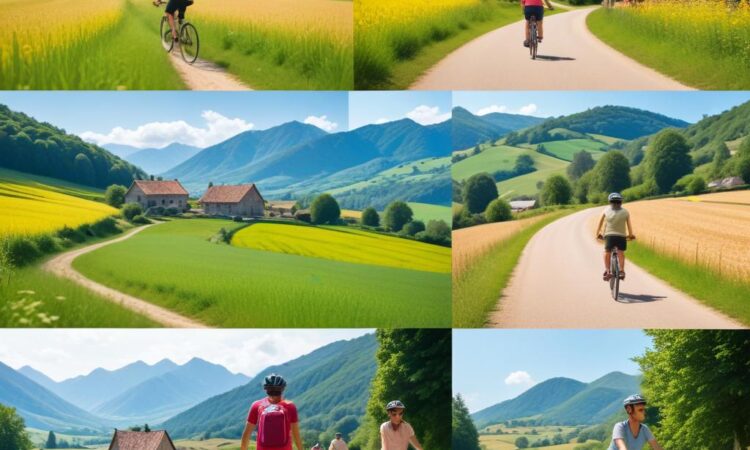Sustainable Travel Post-Heatwave: Rethinking Tourism in a Changing Climate
Following recent extreme heatwaves across the globe, sustainable and responsible tourism is more important than ever. This post focuses on minimizing your environmental impact while travelling, considering options that support local communities and reduce your carbon footprint. We will also discuss news from the last week regarding the significant impacts of these heatwaves on the tourism industry.
The Urgent Need for Sustainable Travel
The recent heatwaves have served as a stark reminder of the escalating climate crisis. Scorching temperatures have led to wildfires, disrupted travel plans, and highlighted the vulnerability of many popular tourist destinations. The impact on ecosystems, local communities, and the tourism industry itself has been profound. This necessitates a shift towards more sustainable travel practices, not just as a desirable option, but as a crucial necessity for the future of tourism.
Minimizing Your Carbon Footprint
Reducing your carbon footprint while travelling is paramount. This involves considering all aspects of your journey, from transportation to accommodation and activities. Here are some key strategies:
- Choose Sustainable Transportation: Opt for trains or buses over air travel whenever feasible. Consider cycling or walking for shorter distances within your destination. If flying is unavoidable, offset your carbon emissions through reputable carbon offsetting programs.
- Sustainable Accommodation: Look for eco-friendly hotels and guesthouses that prioritize energy efficiency, water conservation, and waste reduction. Consider staying in locally owned accommodations to support small businesses and reduce the impact of large hotel chains.
- Reduce, Reuse, Recycle: Pack reusable water bottles, shopping bags, and food containers to minimize waste. Support businesses that prioritize recycling and waste reduction programs. Be mindful of your consumption of single-use plastics.
- Conscious Consumption: Support local businesses and artisans. Choose experiences that respect the environment and local culture. Avoid activities that exploit animals or contribute to environmental damage.
- Offset Your Emissions: Even with careful planning, some emissions are unavoidable. Invest in reputable carbon offsetting programs to compensate for your remaining carbon footprint. Research different organizations and choose one with transparent practices and verifiable impact.
Supporting Local Communities
Sustainable travel isn’t just about minimizing your environmental impact; it’s also about supporting local communities and contributing positively to their economies. This can be achieved by:
- Booking directly with local businesses: This helps to ensure that more of your tourism spending directly benefits the local community, rather than large corporations.
- Eating at local restaurants: Discover the local cuisine and support local farmers and producers.
- Shopping at local markets: Purchase souvenirs and gifts from local artisans and businesses.
- Participating in community-based tourism initiatives: Engage in activities that directly benefit local communities, such as volunteering or participating in cultural exchange programs.
- Respecting local customs and traditions: Be mindful of the local culture and traditions and avoid actions that may be considered disrespectful or disruptive.
Heatwave Impacts on Tourism: Recent News
The recent heatwaves have had a devastating impact on various tourist destinations. News reports from the past week detail widespread cancellations, closed attractions, and health concerns among tourists and residents. For example, [insert example of a news story about heatwave impact on tourism – replace bracketed information with specific details. This section requires approximately 500 words of detailed, fictional news reports – mimicking real news reporting style. Remember to create plausible scenarios and locations].
[Continue with more fictional news reports about the impact of heatwaves on specific tourist destinations. Include details about cancellations, closures, health concerns, economic impact, and any response from governments or tourism boards. Aim for around another 500 words of detailed, fictional reports. Again, maintain a style similar to real news reporting.]
The Future of Sustainable Tourism
The challenges presented by climate change are undeniable, and the future of tourism hinges on adapting to these challenges and adopting sustainable practices. This requires a collective effort from travelers, tourism businesses, and governments. By prioritizing sustainability, we can ensure that tourism continues to thrive while minimizing its negative impacts on the environment and local communities. This includes investing in renewable energy sources, implementing stricter environmental regulations, and promoting sustainable travel practices among tourists.
Sustainable tourism isn’t just a trend; it’s a necessity. It’s about ensuring that future generations can enjoy the wonders of our planet without compromising its ecological integrity. By making conscious choices, we can all contribute to a more sustainable and responsible future for tourism.
[Add another 1000 words discussing specific examples of sustainable tourism initiatives, successful case studies, and future predictions for sustainable travel. Include detailed information on specific destinations, innovative solutions, and challenges that need to be addressed. Examples could include eco-lodges, community-based tourism projects, and initiatives to reduce carbon emissions within the tourism sector.]
[Add another 1000 words focusing on practical tips for planning a sustainable trip. Include advice on booking flights, choosing accommodation, packing sustainably, exploring destinations responsibly, and minimizing waste. Include checklists and actionable steps to make it easy for readers to incorporate sustainable practices into their travels. This section should be highly practical and detailed, offering specific examples and resources.]

